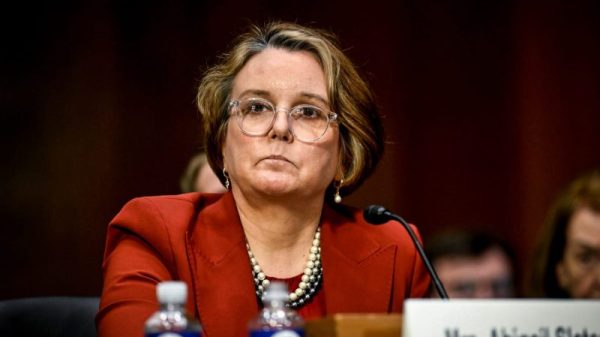August brought a whirlwind of activity in the cannabis industry as the US Drug Enforcement Administration (DEA) set a date for a long-awaited public hearing on the rescheduling of cannabis.
According to public records, the hearing will commence on December 2, 2024, in Arlington, Virginia.
While this date delays the process until after the election, it is still possible that cannabis will be rescheduled before current President Joe Biden leaves office on January 25, 2025.
As anticipation builds, companies are beginning to better position themselves for changing market dynamics — August also brought the first-ever cannabis stock buybacks, as well as a new partnership between two multi-state operators.
State markets also made news last month, with Ohio seeing a strong launch of recreational sales, Delaware starting to accept license applications and New York’s legal market growing amid a crackdown on illicit sales.
Meanwhile, Missouri’s governor issued an executive order to ban sales of hemp-derived THC products, including beverages, which are popular in the state. So far the move is receiving heavy resistance.
Keep reading to discover more about these industry-shaping events.
Ohio sees strong sales after recreational cannabis launch
Sales of recreational cannabis officially commenced across Ohio on August 6 after the Ohio Department of Commerce Division of Cannabis Control issued its first set of dual-use Certificate of Operations (COO) to 98 dispensaries on August 5. The move comes nearly a year after 57 percent of Ohioans voted to legalize it in November 2023, but a month ahead of the anticipated date of September 7.
The issuance of COOs enabled dispensaries to commence recreational cannabis sales alongside medical offerings. While many of them began recreational sales at that time, dispensary operators determined their own launch dates based on factors such as staffing and supply, allowing for a phased rollout.
Business intelligence platform Headset.io found that cannabis dispensaries in Ohio pulled in an average of US$33,864 in sales on August 6, 270 percent more than the US$12,740 daily average brought in by medical cannabis sales. Headset also determined that recreational sales made up 76 percent of all sales on August 6.
That figure dropped marginally after the initial week, but data tracked by Headset revealed dispensaries brought in an average of US$25,487 in sales on August 15, still double the average daily sales from the weeks prior to August 6.
New York’s crackdown on illicit sales drives legal market growth
In New York, a concerted effort to curb illicit cannabis sales has yielded significant results. Governor of New York Kathy Hochul stated on August 26 that the Illicit Cannabis Enforcement Task Force has closed over 1,000 illicit cannabis retailers across the state since efforts began in May. The state currently has 166 licensed adult-use dispensaries.
Known as Operation Padlock to Protect, the crackdown is part of a state-wide effort to boost the legal cannabis market, which has faced competition from illicit sellers as the state has been slow to issue licenses. During an interview on August 22, the acting director of New York’s Office of Cannabis Management gauged that regulators wouldn’t finish reviewing applications for hundreds of business licenses submitted in late 2023 until 2025.
The efforts appear to be working. Governor Hochul shared that in 2024, legal adult-use sales exceeded US$368 million through August 23. In 2023, retail sales for the year only came to US$137 million.
Curaleaf reports international growth, decision on Section 280E of tax code
Curaleaf (TSX:CURA,OTCQX:CURLF) released its Q2 earnings report on August 7, which showed a modest yearly revenue increase of 2 percent. International revenue saw a much larger increase of 78 percent year-over-year, led by sales in the United Kingdom and Germany, as well as contributions from Northern Green, a multi-state operator that Curaleaf acquired on April 22.
“We are starting to see the benefits of the work we initiated 18 months ago to streamline the business, drive efficiencies in our cultivation facilities, and leverage both domestic and international growth opportunities. Looking to the second half of the year, these actions will drive an acceleration in both our revenue and margins as state and country catalysts develop further, including New York, Ohio and Germany,” said Boris Jordan, executive chairman of Curaleaf, in a subsequently released statement.
In its quarterly filings, the company also shared a new position on its federal tax liability by claiming the company is no longer subject to Section 280E of the Internal Revenue Code. Section 280E prohibits businesses involved in the sale of cannabis from taking tax deductions or credits for expenses related to their operations.
Curaleaf joins Ascend Wellness Holdings (CSE:AAWH.U,OTCQX:AAWH), Cresco Labs (CSE:CL,OTCQX:CRLBF), TerrAscend (TSX:TSND,OTCQX:TSNDF) and Trulieve Cannabis (CSE:TRUL,OTCQX:TCNNF), companies that have publicly announced that they will no longer adhere to Section 280E, a move that San Francisco-based tax attorney Henry Wykowski called “reckless” in correspondence with MJBizDaily.
“I don’t know that these people have fully considered and appreciated what the consequences are, and they’re much more severe than people realize,” Wykowski said, referring to a 20 percent penalty — on top of unpaid taxes — the IRS could impose on companies seeking a refund if the claim is ultimately rejected.
Curaleaf said it would amend its tax return from 2022, but admitted that the Internal Revenue Service (IRS) is not likely to agree with Curaleaf’s position and would likely audit the company. Shares of Curaleaf closed almost 6 percent lower following the earnings report.
TerrAscend to launch first stock buyback program
TerrAscend released its Q2 results on August 8, revealing a 7.5 annual increase in net revenue to US$77.5 million. The company also had US$11.7 million in free cash flow in the second quarter, compared to negative US$200,000 in Q2 20023.
Later, on August 20, the company’s Board of Directors authorized a stock buyback program worth US$10 million of common stock over 12 months.
In a press release, executive chairman Jason Wild said, “Our first-ever stock buyback program demonstrates our confidence in TerrAscend’s future and commitment to enhancing shareholder value…We are confident in the strength of our business, growth prospects, operational excellence, and strong cash flow. We believe our equity has compelling value and will be opportunistic with our share repurchases.”
Missouri executive order on hemp-derived products ban receives push back
In Missouri, Governor Mike Parson (R) issued an executive order on August 1 to ban the sale of food products containing hemp-derived psychoactive compounds, including delta-8 THC, unless they came from an approved source.
It directed the Department of Health and Senior Services to embargo all products named in the executive order, and directed the Missouri Division of Alcohol and Tobacco Control to prohibit unregulated psychoactive cannabis products from being sold in liquor-licensed facilities.
“This Executive Order effectively bans the sale of these potentially harmful products in Missouri until such time approved sources can be regulated by the FDA or State of Missouri through legislative action,” Parson said in a statement. “Protecting Missourians, especially the most vulnerable, our children, has been our guiding principle since the very beginning and remains so today.”
Industry leaders argue that the inclusion of products available in adult-only establishments constitutes overstepping, contending that such a move would unduly restrict the rights of consenting adults to purchase and consume products that are legal and intended for their use. For example, hemp-derived THC beverages had become significant sources of revenue at liquor stores and bars.
The order was initially set to go into effect on September 1. However, Missouri’s Secretary of State Jay Ashcroft refused to sign off on the ban on August 22, rejecting the governor’s calls for an executive order on grounds that it did not meet requirements constituting an emergency.
In return, Parson penned a letter to Ashcroft, accusing the former of denying the order because of his “hurt feelings” over Parsons’ decision to endorse Lt. Gov. Mike Kehoe in the gubernatorial primary race on August 6, which Kehoe ultimately won.
According to AP News, Ashcroft’s spokesperson JoDonn Chaney denied Parson’s charge in an email, saying that the secretary of state “reached out to the executive branch to give them the opportunity to explain how it met the requirements and they did not respond.”
Governor Parson directed the Missouri Division of Alcohol and Tobacco Control to refile the emergency order, but without Ashcroft’s signature, the process could take as long as eight months. Further delaying the process, the Missouri Hemp Trade Association filed a lawsuit in the Cole County Circuit Court to stop the ban on August 30.
Curio and Ascend team up to enter new state markets
Curio Wellness and Ascend Wellness Holdings, two cannabis multistate operators, have formed a manufacturing and distribution partnership to help both companies expand into new markets.
Under the terms of the deal, Ascend will manufacture and distribute Curio’s products in Illinois and New Jersey, where Ascend has a considerable presence, and in Massachusetts. Curio, headquartered in Maryland, will do the same for Ascend’s cannabis products in Maryland and Missouri.
The deal provides a cost-effective way for both companies to enter new markets.
“This partnership represents a forward-thinking approach to operational strategy, demonstrating how collective efforts can expand market reach and create a greater return from brand development investments,” Curio Wellness CEO Michael Bronfein said in a statement.
Likewise, Ascend CEO John Hartmann said the collaboration will be good for the industry as a whole. “Together, we will improve consumer access and continue to pave the way for the future of cannabis health and wellness,” he said.
Delaware accepting recreational license applications
The Office of the Marijuana Commissioner in Delaware began accepting applications for recreational cannabis business licenses on August 19. Prospective applicants can submit a proposal by September 30. Eligible applicants will be entered into a lottery scheduled for October, and the licenses will be issued starting in November.
Out of the 125 total licenses available for issuance, 60 are for cultivation facilities, 30 for manufacturing, 30 for retailers and five for testing facilities. Delaware voted in favor of recreational cannabis legalization on April 23, 2023.
Securities Disclosure: I, Meagen Seatter, hold no direct investment interest in any company mentioned in this article.





























